The drug users being given phones to rebuild their lives
- Published
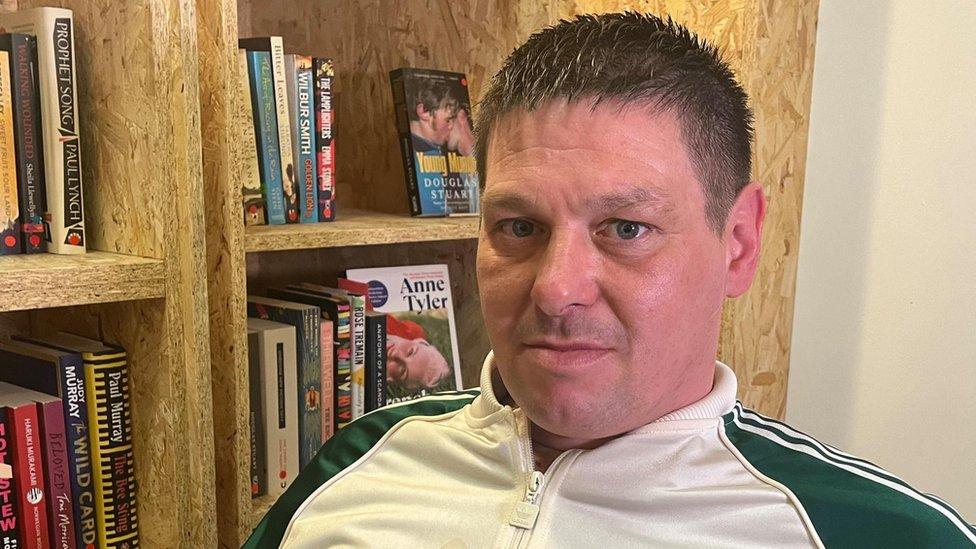
Shaun uses his phone to contact recovery groups
Hundreds of drug users in Scotland have been given phones, tablets and laptops as part of a scheme to help them rebuild their lives.
The initiative, which is part of a £3m project aimed at improving digital inclusion, also pays for a data plan.
Organisers said the scheme provided access to areas of life most of us take for granted - such as connection to family and friends, online banking, health and social care access and entertainment.
Launched in April 2021, Digital Lifelines supports organisations who work with people at greatest risk of harm from drugs.
So far, more than 1,700 people have taken part. A total of 908 phones, 103 laptops and 45 other devices have been distributed, along with almost 1,500 connectivity packages with unlimited data.
Many of those in the programme have experienced homeless, while others have been released from custody or undergone treatment for drug or alcohol addiction. They may have little to no digital skills.
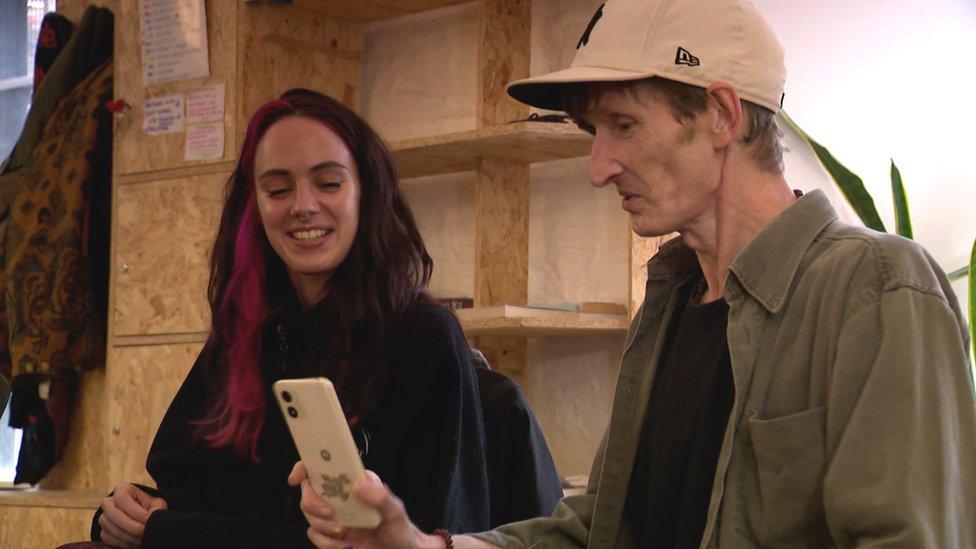
Digital inclusion officer Georgina Davis with Greig
Greig, 51, is originally from Bathgate, but moved to Edinburgh after his heroin addiction caused problems with his family.
He was homeless for four years, and was then in and out of hostels. He was one of the very first to take part in the project.
"It was my support worker from Streetwork that said I could get a phone," he said.
"They set me up with a phone, six-month contract, six-month Wi-Fi. When I got it, I was still involved in drugs a wee bit and I lost the phone - but they were really good, they got me a phone straight away after I lost it. I have had this one for over a year now."
Greig is now in a stable living situation and is studying art at college.
"It's been so helpful for my artwork, getting on to the internet, getting ideas," he said.
"It really gives you a sense of responsibility to look after something and that's quite good because I am looking after myself as well, so it comes together."
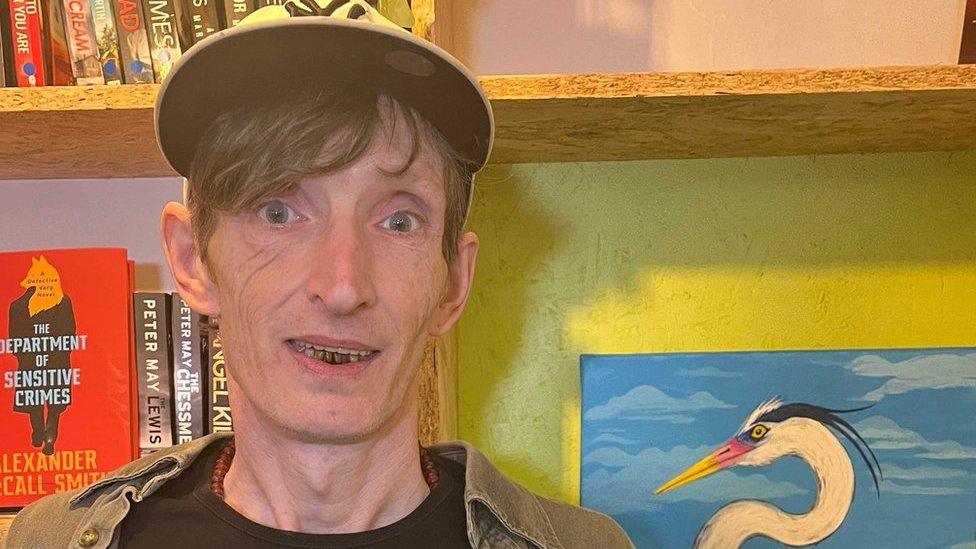
Greig is now studying art at college
Digital Lifelines is funded by the Scottish government's digital health and care and its drugs policy divisions, and the drugs death taskforce.
The Scottish Conservatives said the scheme was well-intentioned but questioned whether it was the most appropriate use of public money.
"In particular, many will wonder about the commitment to giving unlimited data packages, when these aren't accessible to everyone during a cost-of-living crisis," said MSP Sue Webber.
Georgina Davis is the digital inclusion officer with the Simon Community, a charity that works with the homeless. She said that, in her experience, the vast majority of phones were not misused, and that a only handful had been lost or stolen.
"That's always a risk but what we have seen as an overall percentage its extremely low," she said.
"It does so much for them, whether it's contact, connectivity or just entertainment.
"For anyone who thinks the devices would be misused for other purposes, the overwhelming majority of devices are well loved and well used."
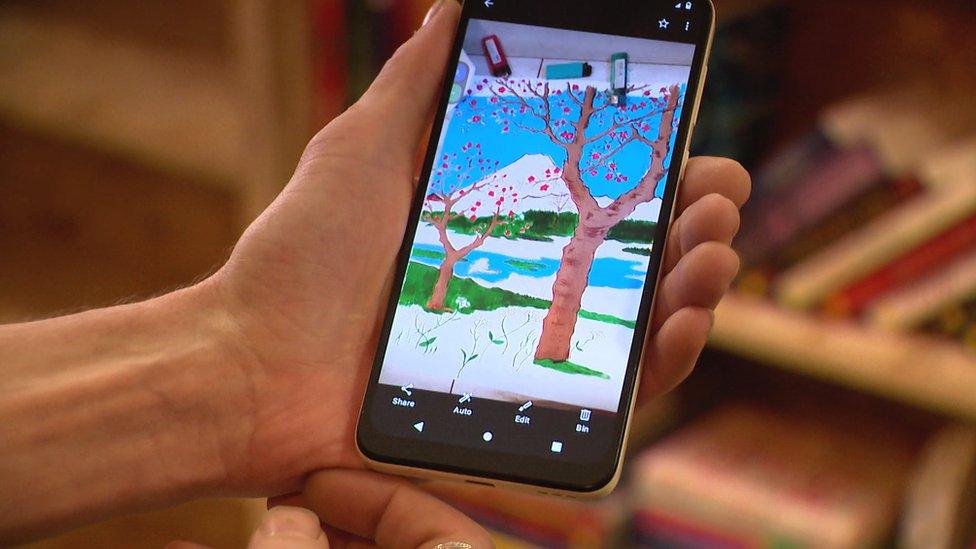
Greig says access to the internet has helped with his artwork
Shaun, from Edinburgh, started drinking at a young age and later moved on to drugs including heroin and then street valium. Fearing for his health, his children asked him to get help.
The 45-year-old went into a treatment centre and has now been clean for almost two months. He says he takes it day by day and is using his phone to video message his children and access support groups online.
"There are recovery groups all over Scotland so I can get in touch with people. I can phone people from meetings anytime, it's a big help," he said.
"It's not just that, being on jobseekers allowance you have to be looking for a job 24/7. I was going on the computers before I had the phone but I am dyslexic so it was hard.
"When you asked for help they could only spend five minutes with you. It's a bit easier now."
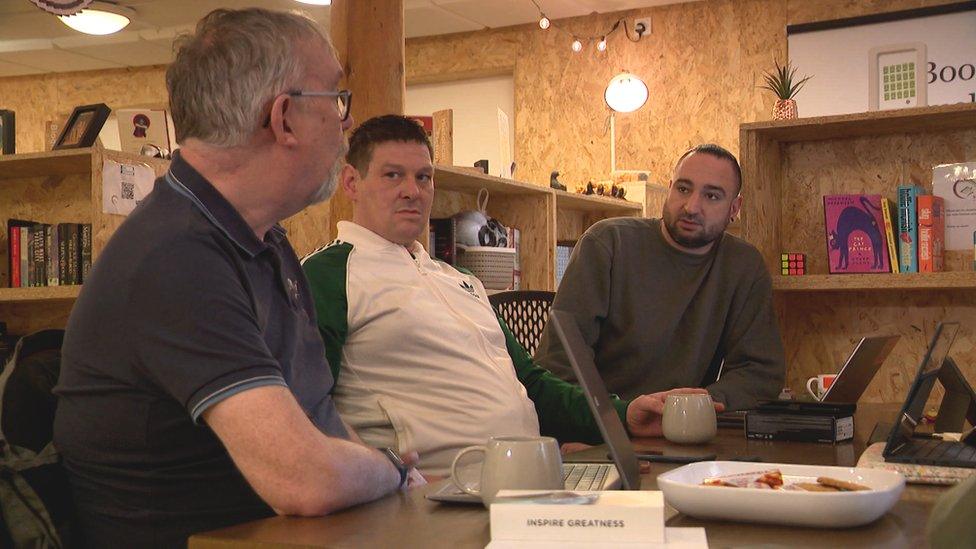
Shaun with support workers from the Simon Community
Since leaving treatment, Shaun has also been able to reconnect with his oldest children and his grandchildren.
"I took my granddaughter to the pictures. Seeing her, it's like going back to when I was bringing my kids up.
"My daughter didn't let me see her when I was on the drugs but now it's completely different."
Carrie Thomson from the Digital Health and Care Innovation Centre leads the project.
She said: "We all take access to digital services for granted, and it's not until you don't have access that the consequences are truly felt.
"So much of life - communication, banking, travel, shopping, and access to healthcare - is now reliant on online, and those on the outside of the digital circle are shut off and the impact can be hugely damaging."
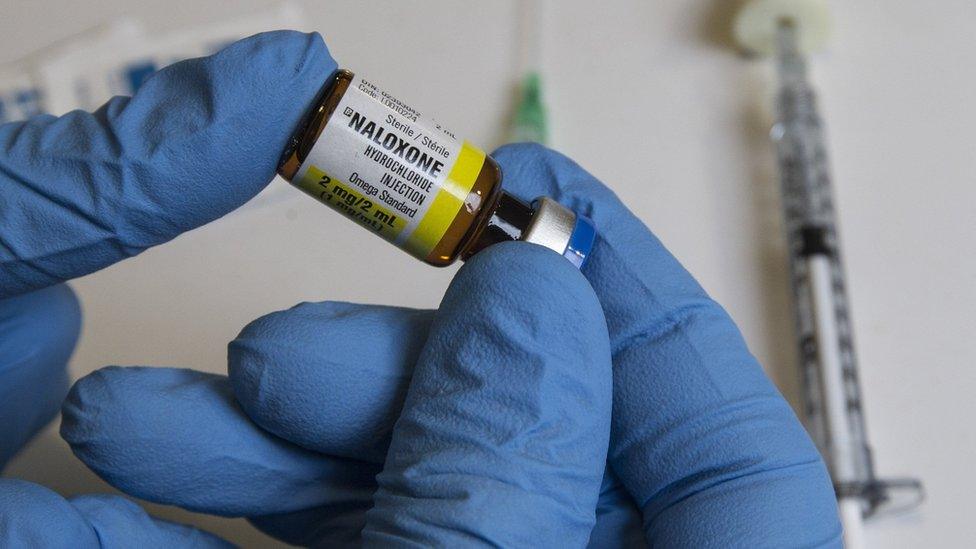
An app alerts people carrying Naloxone to a possible overdose
A number of apps have also been created specifically for those with experience of addiction.
The By My Side app, developed by the Simon Community, gives access to dedicated support and information for those with a drug dependence.
Nalofly uses a GPS signal to alert people carrying Naloxone - a medication used to reverse opioid overdose - to a possible overdose.
Naloxone is carried by emergency services but also is offered to those who use drugs.
The hope is that the phones could be used by people to seek help in emergency situations as well as helping them rebuild their lives.